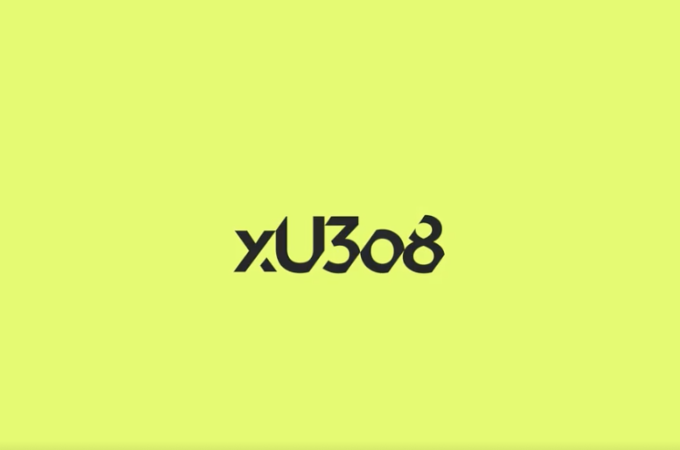
Big Industries Where Blockchain Could Be Used
Blockchain is widely known for its usage within Bitcoin, and now, people and enterprises are starting to understand the blockchain as a phenomenon different from Bitcoin specifically and other digital currencies in general. Banking and payments are not the only sectors that could be disrupted by blockchain tech, moreover, the promising sectors include Music, Voting and NGOs.
Life.SREDA VC is deeply researching the field of alternative finance and presents some of the findings of CBinsights
Entrepreneurs have come to believe that more industries could be disrupted using this technology. There are plenty of business use cases for transactions that are verified and organized by a decentralized platform that requires no central supervision, even as it remains resistant to fraud.
Here are a few of the ways that companies — both large and small — are trying to harness the power of the blockchain.
1. Banking
Banks essentially serve as secure storehouses and transfer hubs for value, and blockchain — as a digitized, secure, and tamper-proof ledger — can address the same function. That means a wave of blockchain-based disruption could affect banking in coming years. Indeed, Swiss bank UBS and the UK-based Barclays are both experimenting with it as a way to expedite back office functions and settlement. Some in the banking industry even say it could cut up to $20 billion in middle-man costs.
Not surprisingly, banks are among the growing number of financial services giants investing in blockchain startups. Capital One Financial, Citi Ventures, and Fiserv are among the investors in enterprise blockchain startup Chain (pictured above).
2. Payments and money transfers
In a recent paper, The World Economic Forum argued that decentralized payments technologies — like bitcoin itself — could transform the “business architecture” for money transfers, which has remained static for the last 100-plus years, according to an article on the WEF paper in Forbes. Blockchain makes it possible to circumvent these clunky systems and create a more direct payment flow that connects payers and payees — across borders or domestically — without intermediaries, at ultra-low fees and almost instant speed.Abra (pictured above) is a startup using blockchain technology for global bitcoin- and blockchain-based money transfers.
3. Cybersecurity
Though blockchain’s ledger is public, the data communications are verified and sent using advance cryptographic techniques. This ensures that the data is from the correct sources and that nothing is intercepted in the interim. If blockchain tech is more widely adopted, the probability of hacking could go down, as blockchain is believed to be more robust than many legacy systems. One way it reduces conventional cybersecurity risk is simply by removing the need for virtually all human intermediaries. “By removing the need for a middle man one lowers the potential security concerns from hacking to corruption,” writes Goldman Sachs.Guardtime (pictured above) is an Estonian startup focused on a blockchain-based approach to industrial-grade cybersecurity.
4. Academic records and academia
The Holbertson School, a California-based software skills program, announced it would use blockchain technology to authenticate academic certificates. This will ensure that students claiming they passed courses at the Holbertson School aren’t using accreditation they didn’t earn. If more schools began adopting transparent academic certificates, transcripts, and diplomas, fraud of this kind could more easily be combatted, not to mention the time- and cost-savings from avoiding manual checks and paper documents.
5. Voting
At West Virginia University, the student government has been mulling over the idea of using a blockchain-based voting platform for its school elections. It would have students vote via their mobile devices, and since the voting is entered into the public ledger, the votes are secure. As one of the students advocating for the new voting process explained it, the votes “can never be altered or deleted by us — the coders — [or] by a University administrator or by a student.”
One Spanish software project, Agora Voting, uses cryptographic techniques to make online voting more secure, and some of their systems have been experimented with in Spain. Recently, the project’s leaders have proposed ways that bitcoin and blockchain technology could be adapted for voting applications, though it’s still early for their experiments.
6. Car leasing and sales
Visa and DocuSign unveiled a partnership late last year that used blockchain to build a proof-of-concept for streamlining car leasing, and making it into a “click, sign, and drive” process. The prospective customer chooses the car they want to lease and the transaction is entered on the blockchain’s public ledger; then, from the driver’s seat, the customer signs a lease agreement and an insurance policy, and the blockchain is updated with that information as well. It’s not a stretch to imagine that a process of this type might be developed for car sales and car registration as well.
7. Networking and IoT
IBM and Samsung have been working on a concept known as ADEPT, which uses blockchain-type technology to form the backbone of a decentralized network of IoT devices. With ADEPT, which stands for Autonomous Decentralized Peer-to-Peer Telemetry, a blockchain would serve as a public ledger for a massive amount of devices, which would no longer need a central hub to mediate communication between them, according to CoinDesk. Without a central control system to identify one another, the devices would be able to communicate with one another autonomously to manage software updates, bugs, or energy management (image credit: IBM).
Others are also looking to build blockchain technology into an IoT platform. For example,Filament, a company that builds a decentralized network using the blockchain (among other things) for sensors to communicate with each other, recently raised a $5M Series A, with both Verizon Ventures’ and Samsung Ventures’ participation.
8. Smart contracts
Smart contracts are essentially computer programs that perform functions based on the action of another object. Like regular computer programming, it’s a normal if-then function, but blockchain makes it possible for these “contracts” to be fulfilled automatically, without human intervention. The use of these contracts could ultimately disrupt one of the core functions of the legal profession, which is to draw up and administer contracts in the business and civic spheres.
For example, mortgages could be facilitated through the blockchain, executing terms automatically as the years go on. People have gotten married using smart contracts powered by Ethereum, a crowd-funded platform for building decentralized applications and smart contracts using blockchain tech. Another company, Hedgy — which raised $1.2 million in seed funding earlier this year from Tim Draper, Marc Benioff, Boost.vc, and Sand Hill Angels — uses smart contracts to make a platform for users to negotiate the value of bitcoin.
9. Forecasting
The entire research, analysis, consulting, and forecasting industries could be shaken up by blockchain. The online crowd-funded platform Augur hopes to capitalize on decentralized prediction markets. The company says it will offer a service that looks like a normal betting exchange. The entire process will be decentralized, and will not only offer users a place to place bets on sports and stocks, but on other topics such as elections and natural disasters. The idea is to go beyond sports gambling and create a “predictions market.”
10. Online music
Many music artists are turning to the blockchain as a way to make online music sharing fairer. Two companies are trying to solve this and other problems by making for more direct payments to the artists and using smart contracts to automatically solve licensing issues,reports Biilboard. PeerTracks, which is still in development, aims to offer a music streaming platform that lets users listen to music and use the blockchain to directly pay the artists with no intermediary. The platform also hopes to create more direct engagement between artists and customers.
Ujo Music, which says it is rebuilding the music industry on the blockchain, is spearheaded by entrepreneur Phil Barry. It also hopes to solve the problem of streaming music and paying artists. Beyond streaming, Ujo is envisioned as a way to better catalog which artists and creators are behind which songs, using smart contracts as the autonomous brains behind the listings.
11. Ride sharing
Ride apps like Uber seem to be the opposite of decentralization — that is, one company acting as a dispatching hub and using its algorithms to control its fleet of drivers and what they charge. Israeli startup La’Zooz wants to be the “anti-Uber,” according to Bloomberg. It makes its own proprietary digital currency — like bitcoin — which is recorded digitally using blockchain technology. Instead of using a centralized network to call cabs, people use La’Zooz by finding other people traveling similar routes and exchanging coins for the rides. These coins can then be used for future rides. Users earn (or “mine”) these coins by letting the app track their locations.
12. Stock trading
For years companies have worked to ease the process of buying, selling, and trading stocks, and new blockchain-focused startups think they can automate and secure the process more efficiently than any past solution. TØ.com, which is a subsidiary of Overstock, wants to enable stock transactions online using blockchain tech. Overstock has already used blockchain to issue private bonds, but now the SEC has approved TØ.com to issue public bonds, reports Wired. Blockchain startup Chain (mentioned above), meanwhile, is working with Nasdaq to enable the trading of shares in private companies through a blockchain.
















